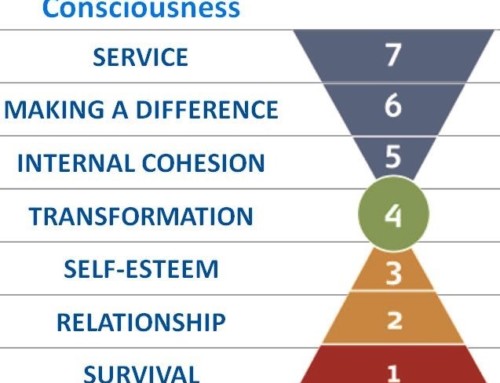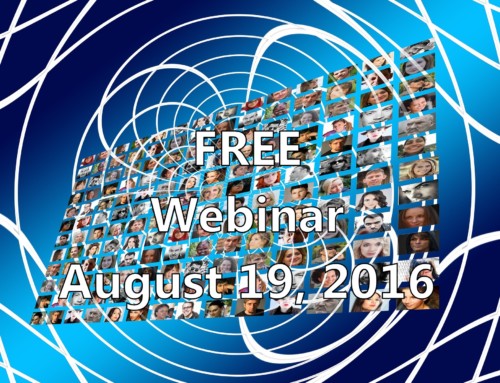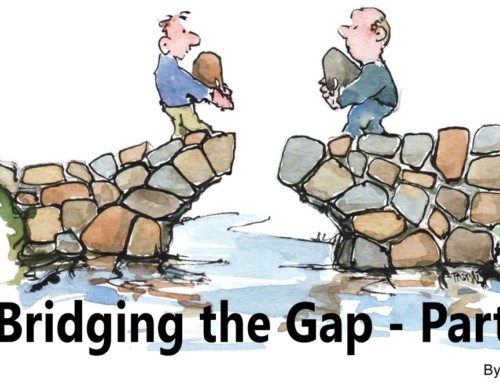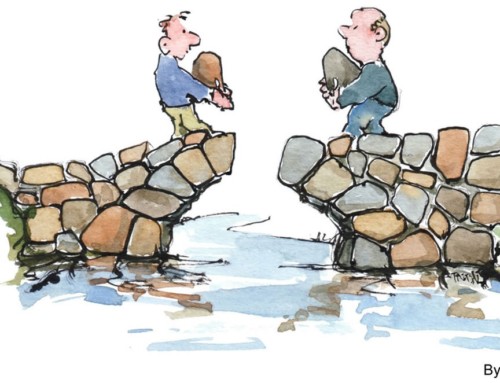We are going to see companies increasingly assume that what they stand for in an enduring sense is more important than what they sell. -Jim Collins
“Best Companies to Work For” Know the Real Value of Building Corporate Culture
It’s no accident that the companies that consistently show up on the “Best Companies to Work For” lists outperform their competitors. These “Best of the Best” understand the importance of improving corporate culture and keep evolving their culture for many reasons, chief among them:
- To attract and retain the very best employees available
- To explore new ways to tap the deepest creativity and highest productivity of each employee
- To develop strategic alliances with partners who share their vision of a better world
- To be socially responsible and serve the common good while creating profit
The visionary leaders of these and other culturally astute organizations understand that a strong corporate culture is central to their long-term success. Of course, that doesn’t make it any less impressive or less challenging for a company to maintain a healthy culture.
Organizations involved in the cultural evolution process have moved beyond control-based management practices and discovered both the art of leadership and the discipline of leadership development. Sadly, far too many organizations still cling to old-fashioned control-based management beliefs, behaviors and governance systems more appropriate for the industrial age than today’s global information age.
Visionary leaders have already made a fundamental transformational shift. As Collins and Porras told us in “Built to Last”, enduring success is found when:
- A company has a culture that gives guidance and inspiration to people inside the company (vision, mission and values)
- And the company lives it’s values (values-driven decision-making)
These organizations have mastered the foundations of financial stability, consistent product/service quality and effective communications. They excel at customer care because they understand the power of employee empowerment and engagement. They also know the value of developing strong leaders who live the values of the company in their day-to-day decision-making.
However, making a strong corporate culture even stronger is a never-ending job which requires ongoing focus and commitment. Sustaining company values and finding ways to deepen the connection with each employee’s passion is no easy task.
Tapping Employee Passion is a Forever Unfolding Odessey
Even when your values, vision and mission are crystal clear, consistent communication and courageous dialogue are needed for them to drive decision-making on a day-to-day basis. And even after you accomplish complete clarity, there is the much more complex challenge of making those values come alive in the hearts of your employees. After all, people desire a strong connection to their work and their organization. They need it to fuel their passion and light the fires of their creativity. The art of leadership is so much more than just clearly communicating vision, mission, values and expectations. And as difficult as that is, it is even more challenging to establish and maintain the depth of connection required to unleash the full potential of your organization.
The seeds of such inspirational leadership are often born in the heart, mind and passionate actions of a visionary founder. The founders of Hewlett-Packard, Bill Hewlett and Dave Packard, serve as a classic example. They created a culture which penetrated deep into the company and which served HP well for many years. Dave Packard created 11 Simple Rules that clearly and concisely laid out the values of how to treat people that guided the leadership at HP for years, well after Dave and Bill left day-to-day leadership of the organization.
1. I first think of the other person. This is the key – the first requirement – to getting on well with others. It is the most difficult thing to do. If you succeed, the rest is a piece of cake.
2. Reinforce the other person’s feeling of importance. When we make someone else feel less important we frustrate one of their deepest instincts. Make the other person feel equal or superior and you will get on well with them.
3. Respect the other person’s individuality. Respect the other person’s right to be different from you. No two people are molded by the same forces.
4. Offer sincere recognition. If we believe someone has done something well, we should not hesitate in telling them. Warning: this does not imply the immoral use of flattery. For intelligent people, flattery produces exactly the response that it deserves, disdain that someone has lowered themselves.
5. Eliminate anything negative. Criticism rarely achieves what we intend, since it invariably causes resentment. The smallest suggestion of disapproval may cause resentment – to your own detriment – for years.
6. Avoid any attempt to change people. Everyone knows they are imperfect, but they don’t want other people to try to correct their faults. If you want someone to improve, help them to embrace a higher goal, a standard, an ideal, and this will work much more effectively for them than you can.
7. Try to understand the other person. How would you react in similar circumstances? When you see the other person’s “whys” you can’t help but get on well with them.
8. Check your first impressions. We are inclined not to like someone at first sight as a result of some vague similarity (of which we are not usually aware) with another person whom we have a reason to dislike. Follow the advice that Abraham Lincoln gave himself: “If I don’t like this man, I have to get to known him better”.
9. Take care of the small details. Watch your smile, your tone of voice, the way you look at people, the way you greet them, the use of nicknames, a memory for faces, names and dates. These small things will refine your ability to get on with others. Always be aware that these things form part of your personality.
10. Develop a genuine interest in people. You cannot apply the foregoing advice unless you want to like other people, respect them and be useful to them. By contrast, you can’t develop a genuine interest in people until you have experienced the pleasure of working with them in an environment of mutual appreciation and respect.
11. Persevere. That’s all, persevere!
In 2006, Hewlett Packard found itself embroiled in a public scandal; a significant divergence from the 11 Simple Rules. Some speculate that the ethical employee base was diluted by the company’s merger with Compaq, the hiring of many senior managers from other firms and the elimination of many long term employees through layoff and early retirement. At HP, as with all companies, it eventually falls on other leaders to continue the culture of the visionary founders. Without constant renewal and attention to the culture, allegiance to values, mission and a compelling future vision become ambiguous.
Connecting Deeply With The Hearts & Passion of Your People
Author and leadership expert John Maxwell said: “A great leader’s courage to fulfill his vision comes from passion, not position.”
The power of a heart connection, the inspiration and creativity that flow when passion is engaged, are undeniable. The question is how can it be tapped? Can we consistently and authentically connect at such deep levels with our employees? Is it realistic? Is it even possible?
There are many great leaders who realized amazing visions by connecting with the hearts and passions of their followers. Every revolution had its Thomas Paine, Martin Luther King Jr. or Gandhi. Most people have been personally fortunate enough to have their hearts ignited and passions flamed by particularly good teachers, coaches or mentors.
Tap Into Employee’s Passion -Tap Into The Organization’s Unlimited Potential
Great leaders have the ability to tap the passion of their followers and leadership development courses abound that aim to help people develop leadership skills. The question remains however: “Can passion be instilled and nurtured or is it only the blessing of the few fortunate naturally charismatic leaders?”
Hope for Non-Charismatic Leaders
Charisma may be the gift of a few, but most leaders can learn to inspire others. Desire and a willingness to explore oneself are essential. Research supports the concept that great leaders can be developed. The process begins with the development of self awareness. Transformational leaders know themselves well and are engaged in a journey of transformation. Positive Psychology has coined the term psychological capital as a knowing of who you are and who you are becoming. The designation of self-awareness as a form of capital may be new paradigm for some leaders, yet is of paramount importance to an organization’s cultural transformation.
Leadership Beyond Limits, LLC offers a program to develop transformational leaders. Transformational leaders:
- model doing the right thing for the right reason
- show genuine caring for the people they work with
- inspire others, because of their clear sense of purpose
- intellectually challenge and creatively stimulate others
To learn more about our leadership development programs click here.
Recent Breakthroughs In 3 Related Sciences Now Address These Leadership Challenges
Leadership Beyond Limits has devised a way to combine three scientific breakthroughs to create a single customized solution for organizations who have invested in their corporate culture and wish to accelerate their cultural evolution. Each organization is unique, and requires a customized application to realize its distinctive potential. Each of the three methods is a true breakthrough in their respective fields. All three have incredible value and application in their own right, when implemented within corporate culture and leadership development efforts. Each is regarded as leading edge for building a positive corporate culture and each is generating a lot of press, discussion and most importantly- measurable results.
Positive Psychology is a new branch of psychology which focuses on the empirical study of human well-being. It embraces three paths to well-being: positive emotions, strengths-based character, and healthy institutions.
Appreciative Inquiry (AI), the rapidly growing discipline of positive change was first articulated by two professors at the Weatherhead School of Management (see David Cooperrider and Suresh Srivastva, 1987). Since then, thousands of people have been involved in co-creating new concepts and practices for implementing AI, and bringing the spirit of AI into organizations all over the world.
Cultural Transformation Tools® for the cultural transformation of corporations, non-profits, NGO’s, government institutions, schools, communities and nations has brought the discipline of measurement to the “soft ” side of business: leadership, values and organizational culture. The fact that individuals and organizations evolve through varying levels of consciousness is an underlying principle of the tools. Our tools define an organization’s current cultural position and support the organization in developing a plan for future evolution.
Although each of these three methods has incredible value when applied in their own right, the potency of a combined solution virtually guarantees any organization will reach its maximum potential.
Putting Measurement in Place: Defining Current Culture
The first step in extending cultural evolution is defining the organization’s current culture. Leadership Beyond Limits’ Cultural Transformation Tools ® create a clear and measurable picture of your current culture and compare it with the personal values of your leaders and with their most desired culture. Our research shows that the most successful, high performance organizations demonstrate a strong alignment between personal and current culture values, and current culture and desired culture values. Putting this measurement system in place is critical to both measuring the impact of your culture over time as well as measuring the depth of your cultural connection with your leaders and employees.
Decision Point: Next Best Steps
Next steps are different for each organization, but typically the leadership team chooses one of three directions:
- Expand the cultural assessment and initiative to the entire organization
- Focus on the leadership team and leadership development as a priority
- Integrate the measurement tools to augment current cultural initiatives
Whichever path is chosen, Leadership Beyond Limits is proud to become a valuable ally to its client organizations in reaching their maximum potential. Most companies on the path of cultural evolution already have significant leadership development and cultural initiatives in place.
Honoring the current culture while integrating the latest advancements from Positive Psychology, Appreciative Inquiry and Cultural Transformation Tools ® is our unique offering.
Results That Speak Volumes
Appreciative Inquiry, Positive Psychology and Cultural Transformation Tools are being used by many elite companies with superb results.
Green Mountain Coffee Roasters, One of America’s Fastest Growing Companies and #1 Award-Winning Corporate Citizen has leveraged the personal change that comes from AI through organization-wide summits. The tremendous impacts gained from these practices include: engaging employees in the development of corporate principles, mobilizing strategic plans at a system level, and advancing the company to the next stages of corporate social responsibility. When the company began using AI as its organizational development approach, stock prices hovered around $18 per share five years later, the stock went to $61 per share.
At Boeing, a crippled defense program was over budget, behind schedule, and facing cancellation. Relationships between employees, unions, and customers were at an all-time low. AI approaches were implemented for strategic planning and transformation to a team-based culture. Within five years the program became the ‘cash cow’ of the largest aerospace company in the world. It won the Malcolm Baldrige Quality Award.
Lowes Foods, a large retail grocery chain, used a series of three-day AI summits involving more than 500 front-line employees and managers in the development of customer service innovation projects. Results include 35% higher sales per man-hour ratio and powerful stories of how employees have transferred this experience to their families.
U.S. Cellular, a Fortune 500 telephone company won ASTD’s award for best organizational change program in the country for its application of AI to improve union-management relations and for using AI methods to re-write the contract. Estimates place the value of the initiative in the millions of dollars, saving the company thousands of jobs, and securing a stronger competitive positioning in the field.
The Methodist Hospital in Houston, Texas committed to revitalizing the mission of the organization with a renewed focus on creating a spiritual caring environment in1997, and they wanted to make it measurable. Achieving this goal became a truly transforming exercise for all facets of the hospital’s operations. Using the values-based Cultural Transformation Tools® (CTT), The Methodist Hospital has experienced an unprecedented cultural change that is bringing its vision of spiritual caring to reality – with quantifiable benefits to employee satisfaction, patient care, health and safety, and the bottom line. One of the impacts of the values initiative has been to reduce turnover from 24 percent in 2002 to 15 percent in 2004, a 38% decline. Vacancy rates went from 6.7 percent to 3.1 percent over the same period. The organization was honored as one of the “Top 100” hospitals in the United States and is #10 on the 2008 Fortune Magazine list of 100 Best Companies to Work For.
Toyota, one of the best-run organizations in the world, has integrated the science of Positive Psychology into its leadership development. Mike Morrison, VP and Dean of University of Toyota has been actively translating the science and findings of Positive Psychology and applying or embedding them in their learning programs. Typically organizations focus their development on the knowledge and skills managers must obtain to be effective leaders. But at Toyota the focus is on the personal leadership journey – discovering one’s strengths, values and beliefs to develop one’s authentic leadership voice.
Low Risk, High Value Assessment
As we’ve said, the first step is easier than might be expected. The web-based nature of the Cultural Transformation Tools® survey allows an entire leadership team to complete it on their own schedule and in less than 20 minutes. Within a couple of weeks the Leadership Beyond Limits consultants will provide detailed feedback to the top leadership team. They will receive:
- A 20+ page report with detailed map the values of the overall organization with breakdown available by staff levels, business units, locations and/or regions or determine demographic differences.
- A 2 hour executive debriefing session, where the leadership team can ask any questions regarding the report findings and recommendations.
- Specific conclusions and actionable recommendations for strengthening the current culture and moving towards the desired culture.
How Does a Leader Know if This is Right For Their Organization?
Why not find out? Leadership Beyond Limits is giving select new potential clients 2 free offers:
- Call or email today to set up a telephone consultation with Tom. There is no cost or obligation for this consultation. Leadership Beyond Limits works with clients who share our passion for bringing meaning and value back to work.
- Take a free LEADERSHIP SELF-ASSESSMENT. This tool is guaranteed to give you new insight into your own personal leadership style and will familiarize you with the power of the Cultural Transformation Tools®
Contact Leadership Beyond Limits to explore maximizing the full potential of your organization.






Leave A Comment
You must be logged in to post a comment.